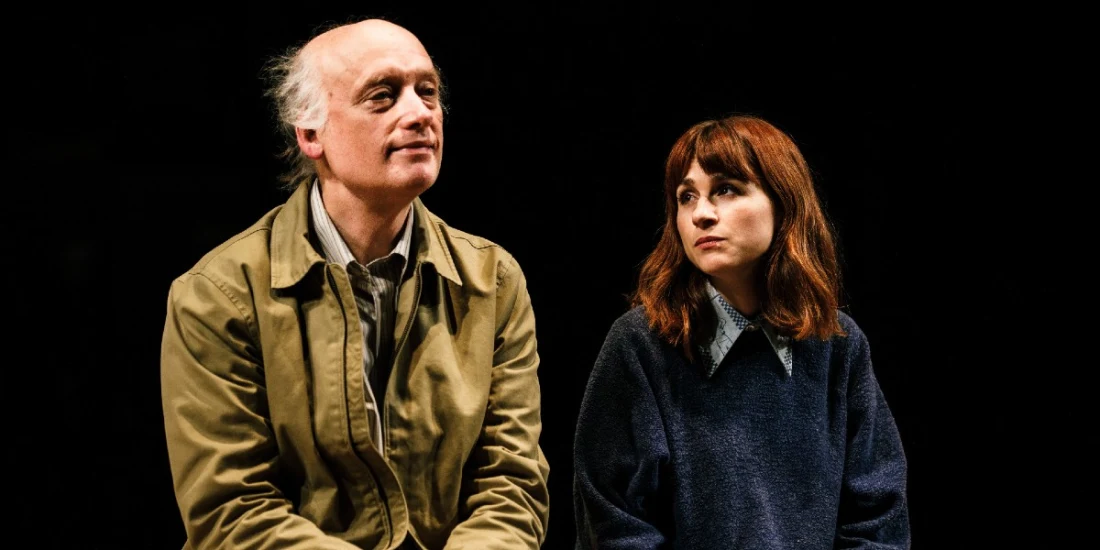'The Best We Could' review — a ride on the road to ruin
Read our four-star review of The Best We Could (a family tragedy), a new Off-Broadway play by Emily Feldman running at New York City Center through March 26.
It's been said that one should never reveal weighty secrets during a car ride — if the other person reacts badly, there's no escape. The characters in Emily Feldman's The Best We Could (a family tragedy) abide by this rule, but a cross-country drive nonetheless puts one family on a road to ruin.
Thirty-six-year-old Ella (Aya Cash) is an L.A.-based, cynical serial quitter at various arts jobs. Her parents — friendly-to-a-fault Lou (Frank Wood) and high-strung Peg (Constance Shulman) — are reluctant retirees in New Jersey. "It might be kind of a waste, but it's something to do" is their unofficial motto, as both would rather work but can't seem to hack it anymore.
They can't even live vicariously through their daughter, who doesn't live up to their definition of success. At least they have a dog to occupy them — but when he dies, Lou travels to rescue another from out of state, accompanied by Ella. The road trip, Peg insists, will make for a refreshing switch from both their listless lives.
The expected U.S. landmark-gawking, father-daughter bonding, and well-meaning parental nagging all happen. But the title forewarns us these interactions will build to a tragedy. An omniscient, emcee-like character known only as Maps (a commanding Maureen Sebastian) subtly amps up the foreboding tone, matter-of-factly dictating the characters' movements and actions as though only she can control their fates.
Lou and Ella learn a lot about each other on the road, and while some of their ensuing debates are benign (like Lou's insistence that college honor societies are more important than she thinks), others reveal larger, potentially insurmountable, gaps between who each thought the other was and who they actually are.
Two major revelations come out in The Best We Could that fully upend the already strained family. The first concerns Ella, and it lays the groundwork for the play's wrenching finale. One can infer the second — a revelation about Lou — if they pay attention to the clues, which Feldman weaves into his character throughout.
Toward the end, I thought of Downstate, an Off-Broadway play from October that interrogates the limits of punishment for those who have done harm. Feldman's play has vastly different subject matter (Downstate centers on formerly imprisoned sex offenders), but it tackles similar themes. We're a lot more inclined to empathize, Feldman suggests, when it's our loved ones in question. Because we're affected by the consequences if we don't.
It's a thorny yet sentimental idea, which stands in sharp contrast to the bare-bones staging, with no set but chairs in a nondescript rehearsal room. But that's part of the reason why it works. Neither Feldman nor director Daniel Aukin manufacture affection for the characters with sweet dialogue or warm, beautiful settings. If we feel for this family, it's a testament to the actors and also, perhaps, our own sense of familial love.
Plus, the staging is ironic — The Best We Could makes us hyperaware of its theatricality, but the premise isn't fantastical. It's painfully plausible. It takes emotions and experiences we as humans champion — connection, family, integrity — and flips them on their head.
Photo credit: Frank Wood and Aya Cash in The Best We Could. (Photo by Marc J. Franklin)
Originally published on
